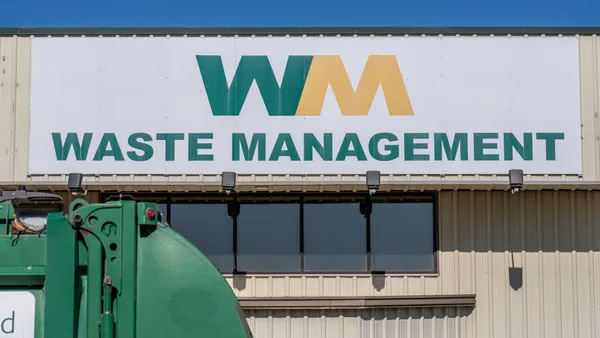Sen. Bernie Sanders, I-Vt., announced a sweeping climate platform last week characterizing climate change as a "global emergency" and pledging $16.3 trillion to address the crisis – including via multiple waste and recycling initiatives.
The plan, which builds on the Green New Deal, calls for the establishment of a nationwide recycling program as well as significant funding for food recovery and composting programs. It would also enact a national right-to-repair policy for farm equipment and make "massive" R&D investments, including in chemical recycling for plastics.
Furthermore, the plan seeks to ensure a "just transition" for environmental justice communities and workers impacted or displaced by the closure of incinerators, hazardous waste sites and other polluting facilities. Landfills are not mentioned specifically.
Unveiled last Thursday in the wildfire-devastated town of Paradise, California, Sanders's platform is described by media outlets and political commentators as the "boldest," most aggressive climate plan yet released by a 2020 Democratic candidate.
"The climate crisis is not only the single greatest challenge facing our country; it is also our single greatest opportunity to build a more just and equitable future," the plan stresses, "But we must act immediately."
Sanders's plan aims to achieve 100% renewable energy for electricity and transportation by 2030 and complete decarbonization by 2050. It also outlines several elements pertaining to the waste and recycling industries, including:
-
A nationwide materials recycling program. Sanders's platform promises extensive R&D for renewable technologies – which, in order to prevent an "outsized" environmental impact from harvesting raw materials, requires the use of "as many recycled materials as possible." The proposal seeks to establish an extended producer responsibility program requiring large corporations to pay to take back goods from consumers – which will be processed in a national recycling program and used to "build the renewable energy equipment needed to transform our energy system."
-
A just transition for frontline communities. The plan shines a spotlight on communities "at the frontlines of the climate emergency," citing a New School report revealing that nearly 80% of U.S. incinerators are located in low-income communities and/or communities of color. It seeks to advance environmental justice principles by expanding EPA investigations into environmental racism; updating permitting rules for polluting facilities; and proposing tighter regulations on hazardous waste sites, chemical and industrial plants, and decaying infrastructure. Sanders also aims to make Green New Deal jobs and training resources – including for cleaner manufacturing and recycling – available to disadvantaged and/or displaced workers.
-
Expanded organics and sustainable agriculture infrastructure. The plan calls for a $410 billion investment in transitioning farms to "ecologically regenerative agricultural practices," including carbon sequestration and a national right-to-repair law for farm equipment (the latter of which was previously proposed by Sen. Elizabeth Warren, D-Mass.). Moreover, it pledges a $160 billion investment in food waste reduction and composting programs.
Neil Seldman, co-founder of the Institute for Local Self-Reliance, praised many aspects of the Sanders plan – particularly its provision of an equitable transition for workers displaced by divestment from certain industries. While the proposal emphasizes fossil fuel workers, Seldman noted to Waste Dive that it is "particularly important for the waste industry, where citizens are winning battles to shut down incinerators."
He also commended the inclusion of right to repair — while expressing hopes that the proposal of a nationwide policy might be expanded to include other industries.
Sanders's plan, while one of the highest-profile climate commitments to emerge since the 2020 race kicked off, isn't the only platform to explicitly touch on waste issues.
Andrew Yang's climate plan, revealed this week in a detailed blog post, promises $4.87 trillion in climate-related spending over two decades – a portion of which would go toward tripling annual mandatory funding for biogas to $200 million. Yang also proposes establishing an e-waste recycling program to account for rapidly developing battery technology, noting that sustainability "means designing products with their disposal in mind."
The campaign proposals come at a time of heightened federal attention on waste. The latest Farm Bill allocates a collective $125 million for food waste reduction and composting programs, and a new federal bill (H.R. 3744) is proposing the creation of a new 30% investment tax credit for qualifying biogas and nutrient recovery projects.
The Green New Deal also expressly acknowledges waste issues – most prominently through the Zero Waste Act, which was introduced by Rep. Ilhan Omar, D-Minn., last month. The bill would provide up to $250 million in funding for "zero waste" initiatives – including organics recycling infrastructure, e-waste recycling or reuse, source reduction and market development.










